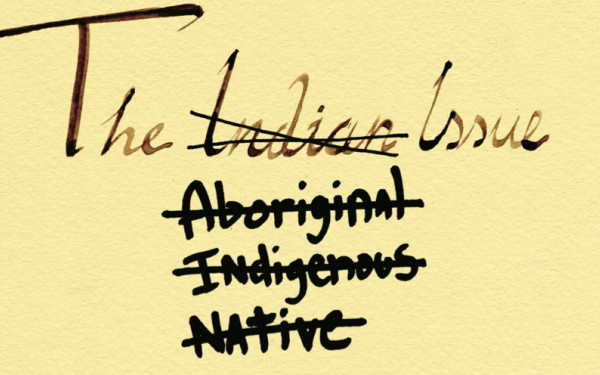Indigenous Consultation Matters
How Proper Consultation With Indigenous Communities on the Trans Mountain Pipeline Will Benefit Canadians and More
‘‘It’s better to ask for forgiveness than for permission’’ seems to be the motto the Canadian government was functioning under until the Trans Mountain Pipeline project was halted by the Federal Court of Appeal last week.
Now, with the government’s failure to properly consult Indigenous communities over this controversial project, significant delays are expected before it can progress any further.
This delay has upset many Canadians, especially now that Ottawa has purchased the project at a whopping $4.5 billion. The project will be at a standstill until a proper consultation with the affected indigenous communities will be held – a right provided them under the Canadian Constitution.
As the project sits idly, waiting for proper consultation to occur, Canadians are missing out on the economic benefits that would be brought by the expansion of the pipeline.
Alberta’s Premier, Rachel Notley, represents many Canadians when she angrily blames the current federal government for making the expansion “practically impossible”. As frustrations are rising over the predicament, Canadians may be asking why secondary consultations with indigenous communities are necessary.
In a leading case on Indigenous rights of the Constitution Act, the judge laid out that “The doctrine of Aboriginal rights exists…because of one simple fact: when Europeans arrived in North America, Aboriginal peoples were already here, living in communities on the land, and participating in distinctive cultures, as they had done for centuries.”
The damage done to Indigenous people is, at this point, irreversible when considering the fact that many First Nations cultures are wiped out. Along with their language and religion, European settlers also imposed their own ways and ideas of benefitting from the land they chanced upon.
Before Canada was Canada, it was inhabited by peoples who held great respect for the earth and the resources it yields. They acknowledged and honoured that it provides life for humans and all other living things by not taking more than they needed. Now with climate change, we’re seeing the rotten fruits that the exploitative ideologies of colonizers have brought upon the planet.
Failing to consult with these communities is simply repeating the mistakes of the past – disregarding a set of values and traditions and imposing one’s own.
Canadians cannot reverse the damage that has been done to the land or to Aboriginal peoples’ cultures. But we can recognize what’s been done and move forward in a healthier way by respecting the opinions and answering the questions First Nations have concerning projects such as the Trans Mountain Pipeline.
According to CBC, 43 Indigenous communities reached an agreement with Kinder Morgan, the American company from which Ottawa bought the project. But the conditions under which these agreements were met are questionable.
Under former prime minister Stephen Harper, Indigenous peoples were regularly taking the government to court and not much has changed under the current Trudeau leadership. A history of a lack of consideration for their rights can lead to the belief that it wouldn’t be any different this time. Members of these 43 communities may have signed on, jaded by this belief and hoping at the very least, to glean some economic benefit from the deal.
And still, a sum of 43 agreements is weak when considering that the Pipeline will be within proximity of around 120 First Nation communities.
Dustin Rivers, a spokesperson for the Squamish Nation said in an interview with CBC that many of the concerns they had were not addressed. Questions about the contents of the pipelines or the environmental impact of a spill were not answered.
Now that the ownership of the pipeline has changed from Kinder Morgan to the government of Canada, new benefit agreements will have to be signed. Following the decision of the court of appeal, there is the possibility that the initial 43 may change their minds and request a new deal. The Canadian government will have to be up to the task.
Refusal to engage in a two-way dialogue does not equate to consultation. A meaningful and adequate consultation looks like giving substantial answers to questions and taking down notes of real concerns, then coming back with solutions. After all, these are not matters that should only concern Indigenous peoples, but all Canadians.
Earlier this month, U.N. Secretary General António Guterres appealed to global leaders, reminding them of the “defining issue of our time,” at headquarters in New York. He urged leaders to move away from fossil fuels, calling the claim that “tackling climate change is expensive and could harm economic growth…, hogwash.”
There is no easy solution to climate change and I’m certainly not saying that halting the construction of the pipeline is the best way forward. But taking into consideration the concerns Indigenous peoples have about controversial projects like the Trans Mountain Pipeline would be beneficial for more than just their communities. Adopting some of the traditional views Indigenous people have about the earth would not only be a minuscule way in which we can make amends for the wrongs of the past but is also a healthy way to move into the future.
Guterres warns that leadership is lacking and we risk meeting the Paris Agreement climate goals by 2020. Meanwhile, Notley pulls Alberta out of the federal climate plan following the announcement of the projects delay. What Notley and other Canadians need to recognize is that there is more at risk here than just Canada’s short term economic future.
The entire way we approach projects which have such a largely harmful potential on, not only our country but on the planet we all share, should be re-evaluated. I, for one, applaud the courts on holding up Indigenous rights to be consulted – I would like to hear more about what Indigenous people have to say on decisions affecting this land.




_600_375_90_s_c1.jpg)
ED1(WEB)_600_375_90_s_c1.jpg)

1_600_375_90_s_c1.jpg)